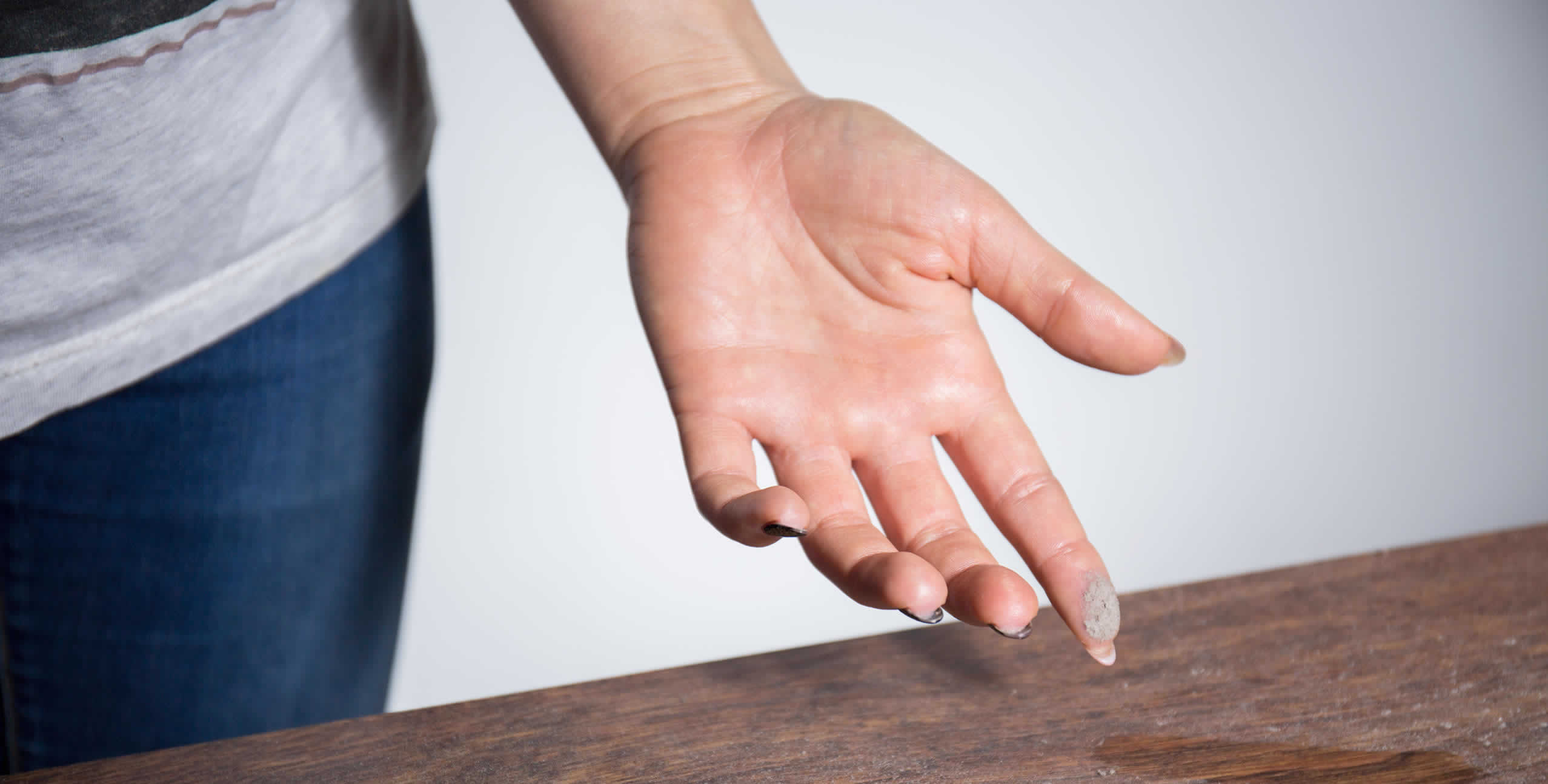

What is a Dust Allergy?
A dust mite allergy is in fact a reaction to proteins in the excretion of the dust mites. Yes, that’s right, you’re allergic to dust mite poo.
All homes in the UK have dust mites, but due to their tiny size (around 0.25-0.3mm) and translucent bodies they are almost invisible to the naked eye (don’t worry – unless you have a dust mite allergy, they are harmless).
When the allergenic proteins are breathed in or make contact with the skin of an allergic person, their body reacts with symptoms – wheezing, sneezing, runny nose and soreness and redness of the skin and eyes.
Dust mites thrive in warm humid environments, our beds being one of their favourite spots. We spend about a third of our day in bed, shedding skin cells and creating moisture with our breath and bodies which the microscopic mites need to live on.
Why do I react?
An allergic reaction is an overreaction of the body’s immune system to an otherwise harmless substance. The substance which triggers the reaction is called an ‘allergen’. This can be anything from pollen and dust, to foods or even latex.
The body reacts by producing excess histamines, which are part of an overreaction of the immune system. This causes symptoms which can range from a rash or itching to difficulty breathing.
Symptoms
Spending more time inside during cooler months, (meaning increased contact with dust or pet allergens), can cause symptoms to flare up and become difficult to manage. This may actually be the first time someone realises that they have an allergy.
Indoor allergy symptoms caused by dust or pets can be very similar to the more well-known hay fever symptoms.
Common symptoms include;
- Sore, itchy, watery, red eyes.
- Sneezing and wheezing.
- Cold like symptoms such as a runny nose and sinus pain. (Many people believe they have a ‘winter cold’ when their symptoms are a result of spending more time inside amongst dust or pet allergens than in the summer).
- Asthma can be triggered by many of the allergens found in our homes.
- In some rare cases, sufferers can experience extreme symptoms such as shortness of breath or even anaphylaxis. (Click here to visit the Anaphylaxis Campaign website– a brilliant charity which supports people with severe allergies).

Dust Allergy: Tips and Treatments
Practical tips for dodging allergy danger zones around the home.
At HayMax, we love to say ‘less allergen, less reaction’. What this means is that prevention is key with allergies. No home is 100% allergen free, but there are some simple ways to minimise the allergens around you. Here are some simple, easy to implement tips:
- Natural:
- Use an organic, drug free allergen barrier balm. HayMax can be applied to the nostrils and bones of the eyes in the morning and throughout the day, to trap over a third of pollen particles before they enter the body where they can cause symptoms. Less pollen, less reaction!
- Saline nasal rinse
- Click here for more on the Drug-free and Natural Help page.
- Pharmaceutical:
- Use an antihistamine. You can buy these over the counter…
- Use a steroid nasal spray
- Use eye drops
- Investigate immunotherapy
- Click here for more in the Conventional Treatments page.
- Create your own hay fever first aid kit. One or more natural products, one antihistamine, one nasal spray and eye drops.
- Keep pets off sofas and beds (out of the bedroom altogether if possible).
- Damp dust surfaces regularly.
- Vacuum regularly. It may also be beneficial to install “Allergy Friendly” flooring. (Click here to see the Allergy UK range).
- Consider using an air filter/purifier with a HEPA (High Efficiency Particle Arresting) filter to capture the dust particles and cool and circulate the air.
- Use allergy friendly mattress covers and bedding. (Click here to see the Allergy UK range).
- Keep cuddly toys and blankets in a cupboard to prevent the buildup of allergens on them.
- Don’t dry clothes inside over a radiator – this increases the humidity in your home and can result in mould, which releases tiny spores into the air that you breathe.
- Mould and dust mites thrive in moist environments. Keep the humidity in your house between 40% and 20% to control allergens.
- Be careful when using harsh chemicals for cleaning. The fumes can exacerbate breathing problems (a common trigger for asthma) and cause skin irritation.
- Use HayMax Allergen Barrier Balm to trap pollen, dust and allergens before they enter the body. Find out more here.
Remember… You must not rely on the information on this website as an alternative to medical advice from your doctor or other professional healthcare provider. If you think you may be suffering from any medical condition, you should seek medical attention.

Testimonials

HayFever

Practical Tips









